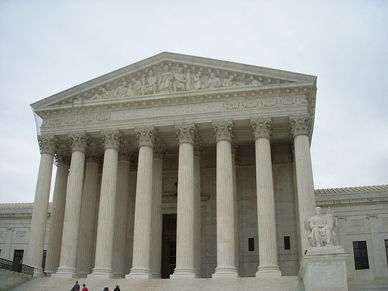
by Georgia Center for Opportunity | Nov 18, 2016
New research from EdChoice finds that Georgia’s scholarships for K-12 private school students have saved the state between $12 million and $85 million since 2011. Nearly two-dozen states have similar tax credit scholarship programs that allow individuals or businesses to make charitable contributions to K-12 private school scholarship organizations. The nonprofit scholarship organizations award scholarships to eligible students, and donors can take a credit on their state taxes that is equivalent to some or all of their donation.
EdChoice’s findings come at an important moment for state families because the state supreme court is considering a challenge to the program. Two years ago, the Southern Education Foundation supported four Georgia residents’ lawsuit to block state families from using the scholarships for their children. Recently, the Cato Institute filed an amicus brief in support of the scholarships.
“We urge the court to affirm the determination that the tax-credit program does not violate the state constitution, focusing on the fact that it does not involve spending public funds for any sectarian purpose,” write Ilya Shapiro and David McDonald.
In Georgia, individuals and businesses can receive a dollar-for-dollar credit for their contribution to scholarship organizations up to certain limits ($2,500 for a married couple and businesses can claim no more than 75 percent of their tax liability). Since 2010, scholarship organizations have awarded more than 60,000 scholarships for students to use at K-12 private schools.
Teacher unions, school board associations, and other associations regularly challenge parent and student educational options in court. Fortunately for families, courts have upheld tax credit scholarships around the country, without exception. The U.S. Supreme Court upheld the nation’s oldest such scholarships, in Arizona, in 2011.
The decision paved the way for students like Gabe Alba-Rivera to discover opportunities he didn’t know existed before his scholarship. In my 2014 interview with Gabe, he explains that he was born in Mexico and had little more than broken pieces of his school’s roof to draw hopscotch squares at recess. A bucket of water served two purposes when he used the bathroom—the first as his bathroom pass, the second to flush the toilet.
After moving to Arizona, Gabe used a tax credit scholarship—nearly identical to the scholarships available to thousands of students across Georgia—to attend Brophy Prep, where he was active in the school Robotics Club. Gabe earned a spot at MIT, where he studies 3-D printers.
Twenty-eight scholarship organizations serve Georgia families, and these groups awarded more than 13,000 scholarships last year. The state supreme court should uphold the lower court ruling and protect families’ freedom to choose the best learning opportunity for their child.

by Georgia Center for Opportunity | Sep 30, 2016
In 1952, Patrick Skene Catling wrote The Chocolate Touch, a retelling of the King Midas fable that reminds us we can have too much of a good thing. In Catling’s story, the main character finds that everything he eats turns to chocolate (with King Midas, everything he touched turned to gold). Hilarity, and nausea, ensues.
The Georgia Budget and Policy Institute’s latest report on the state’s HOPE and Zell Miller scholarships provides valuable findings about college scholarships and the students using the funds. The Institute’s recommendations, however, might give us too much of a good thing.
The Institute reports that a smaller percentage of low-income students use the scholarships (30 percent) than middle and upper-income students (42 percent). The authors are correct when they say that college tuition has “skyrocketed” recently—a finding that is true for colleges around the country. The authors also make a compelling point when they write, “Students need more options to gain valued skills and enter successful careers, regardless of their families’ background or bank account.”
Yet their solution will not solve the college cost problem nor the opportunity issues. The Institute suggests lawmakers find “an enhanced approach to financial aid that ensures students from all backgrounds…can gain the benefits of a college degree.”
If the Institute’s goal is to help qualified students—regardless of background or income—get help paying for college, such an objective may result in better candidates entering the workforce. But the report’s emphasis on sending as many students to college as possible should give taxpayers and students pause.
The Cato Institute’s Neal McCluskey has documented research that links increasing college tuition with increased levels of federal aid (similar to the “Bennett Hypothesis,” formulated by former U.S. Secretary of Education William Bennett). State lottery proceeds fund the HOPE and Zell Miller scholarships, but universities’ incentives remain the same: If scholarship funding is almost guaranteed, why lower tuition, especially if students can combine a scholarship with federal aid? Scholarships help students pay tuition, but this assistance does not create an incentive for schools to keep costs down.
Moreover, both scholarships require students keep their grades up in order to participate. The Institute says the merit-based awards are “disproportionately out of reach for students of modest means.” Yet the state should not lower the bar for this assistance because sending a student to college that is unprepared for higher education does not help that student.
Policy debates on college tuition and student opportunity intersect when unprepared students step on campus. If an undergraduate drops out without a degree, they find themselves in need of a job but without a degree to improve their prospects. According to an Urban Institute report, “Not completing a degree is a significant predictor of repayment difficulty and default,” as 43 percent of college dropouts that used college loans have debt levels of $10,000 or lower. A quarter of college dropouts that used loans have debt levels of between $10,000 and $20,000.
Sending everyone to college, even if they are unprepared, puts students from low-income families at great risk for debt later in life. Students with few resources that struggle in school and dropout of college will struggle to attain the American Dream even when well-intentioned policymakers try to help.
The Georgia Budget and Policy Institute’s report on scholarships provides a useful analysis of the kinds of students using state scholarships for higher ed. Furthermore, the Institute’s suggestion that the scholarships be available to students in their 20’s and 30’s may help nontraditional students that enter college later in life.
But in order to help more students succeed in their education and career, state lawmakers should give students better access to quality learning opportunities in K-12, like education savings accounts and encouraging the growth of high-quality charter schools. Meanwhile, policymakers should commit to helping students, no matter their socioeconomic status, make informed decisions about whether college is the right choice.
With the prospect of long-term debt, the idea of sending as many students to college as possible should make taxpayers—and students—nauseous.

by Georgia Center for Opportunity | Aug 31, 2016
Computational model exposes severe problems with the welfare system
Previously, it was shown how a single mom with two kids in Gwinnett County could lose welfare program benefits by earning more money. This explained why $9 + $1 can equal negative $6,000.
The Gwinnett county example showed only two wage levels. However, the computer model provides results for a large range of wage levels and family structure. This enables policymakers, administrators and interested citizens to see a more complete picture of the challenges facing a family in poverty.
The computer model can generate scenarios in any of the other 158 counties in the state of Georgia.
No matter the county welfare cliffs (that unintended consequence of the current welfare system whereby an individual or family loses by earning more) can be found – essentially trapping families into a level of income.
These cliffs can be clearly seen on the chart below. Wherever there is a drop in a line, there is a loss in benefits that exceed the gain in earned income.
Also clearly seen, the benefit levels are very high and the severity of the cliffs significant. More surprisingly, there is not just one cliff but a series of cliffs that cascade down.
The chart shows that when government benefits are taken into account, it is financially better for a single mom to earn an hourly wage of $9 than an hourly wage three times as much, or $27 per hour.
Of course, it is important to point out that the severity of the cliffs and the income levels where they drop off change depending on the county, the characteristics of the family, and other factors.
These findings underscore the need to undertake fundamental welfare reform beyond the various reforms already being implemented. The system needs to become more rational so not to punish families who try to get ahead by earning more money.
A forthcoming study will highlight other examples.
Chart showing welfare cliff for typical family in Gwinnett County:

How to read the chart: The chart above illustrates the scenario highlighted in this and the prior posts , that is, a single mom with two children in Gwinnett county. The horizontal axis is gross earned income, and the vertical axis is the sum of net earned income plus the various welfare assistance benefits. The first line on the bottom is net earnings. The next line above is net earnings plus refundable tax credits. Each line stacked above adds another government benefit in the following order: TANF Cash, food benefits (Food stamps, free school meals and WIC food packages), housing (Section 8 Housing Choice Vouchers), subsidized child care (the CAPS subsidized childcare program), medical assistance (Medicaid and PeachCare), and Affordable Care Act subsidies.

by Georgia Center for Opportunity | Aug 25, 2016
Computational model exposes severe problems with the welfare system
Pop quiz: When does $9 + $1 equal –$6,000?
This may look like new math, but it is not.
This seemingly nonsensical equation illustrates the challenges faced by families who receive assistance from means-tested welfare programs.
In fact, these exact numbers come from a computer model I designed, which was sponsored by the Georgia Center for Opportunity. It evaluates financial incentives, or more precisely, disincentives embedded in our nation’s welfare system.
This computer modeling examined the potential case of a single mom with two children in Gwinnett County, Georgia. Using 2015 data, if she were offered the opportunity to earn $10 per hour instead of earning $9 per hour, she would lose nearly $6,000 in welfare benefits within a year’s time.
The reason for the loss is not due to her earned income. By increasing her earnings from $9 per hour to $10, she nets an additional $1,820 a year. The reason for the loss has to do with the way the welfare system is designed, or more accurately, the way it has been haphazardly put together over the past fifty years. At $9 per hour, the single mom would be eligible for the following means-tested programs:
the earned income tax credit ($5,419),
additional child tax credit ($2,000),
food stamps ($2,772),
free or reduced-cost school meals ($502),
WIC food packages ($480),
Section 8 housing choice voucher ($9,805),
subsidized childcare ($8,918), and
Medicaid ($4,570).
When added together, this single mom has a benefits package—courtesy of the taxpayers—estimated at $34,467. So instead of bringing home $17,266, her estimated income is actually $51,733 after government subsidies are included. To state it differently, for every $1 she earns in net income, she is eligible for nearly $2 in welfare benefits.
Now consider the case if she would earn $10 per hour. She would still receive means-tested benefits, but the benefit amounts will change as follows:
earned income tax credit ($4,977),
additional child tax credit ($2,000),
food stamps ($2,352),
free or reduced-cost school meals ($502),
WIC food packages ($480),
subsidized childcare ($8,658),
Medicaid ($4,570), and
Affordable Care Act credits and subsidies ($3,152).
In summary, her benefits drop to an estimated value of $28,938. When combined with her take-home pay, she is worse off by nearly $6,000 from earning $10 per hour than earning $9 per hour.
What this example demonstrates is the infamous welfare cliff, that unintended consequence of the current welfare system whereby an individual or family loses by earning more.
Unfortunately, this example is not an isolated incident. It represents what’s happening everywhere.

by Georgia Center for Opportunity | Aug 8, 2016
A new report released by The Institute for Family Studies finds that 69 percent of 18-45 year olds in Peachtree Corners and Norcross think single parents can raise children just as well as two parents. Furthermore, 63 percent approve of divorce when married people realize they no longer love each other.
Permissive attitudes towards divorce and unrealistic expectations for single parents, however, do not make for human flourishing. The report cites sociologist Sara McLanahan and economist Isabel Sawhill, who write, “Most scholars now agree that children raised by two biological parents in a stable marriage do better than children in other family forms.” Additionally, economist Raj Chetty found that the foremost indicator of upward mobility among poor children is the percentage of children with single parents.
Still, the study does present positive findings. 71 percent of surveyed residents agree that it is important to wait until marriage to have kids. Overall, marriage continues to enjoy high interest in the area: 47 percent of 18-45 year old residents in Norcross and Peachtree Corners are married, and another 46 percent would like to be married.
Our Healthy Families Initiative (HFI) hopes for more clear thinking on family formation. We want to equip fathers and mothers in Peachtree Corners and Norcross, so they can give what children need: a permanent, stable, and loving home environment. To this end, HFI offers workshops to local residents regarding fatherhood, dating, and relationship building within marriage. Registration for workshops is open for local residents, married and unmarried.

by Eric Cochling | Jul 18, 2016
Something happened in College Park Wednesday night that hasn’t really garnered much attention but should be front-page news. Thanks to the College Republicans at Morehouse College, I was able to participate in a panel* focused on how to constructively respond to recent police shootings of black males and the violence and protests that have followed.
Diego Aponte, President of the Morehouse College Republicans, said it best when he said that, while protests are necessary at times to raise awareness of a problem that’s going unaddressed, the real question is whether we know what can and should be done to solve the problem.
While much of the discussion centered around ways the public can hold police officers accountable for their actions and how police can more effectively engage with the communities they serve – through things like actually living in the community or regularly interacting with community members – a significant amount of time focused on the systemic problems that are limiting opportunities for young African-American males.
Because of our work at GCO, the topics that kept coming up were not new to us – lack of a quality educational options, limited access to employment, and epidemic levels of family instability. Each problem, in its own way, chips away at the ability of an individual to succeed in life. Together, they can virtually insure that a person experiences poverty and all of the social pathologies – including crime – that come with it.
After a discussion that continued for the better part of three hours, a group of us agreed to come together again, but this time for the express purpose of plotting out the concrete actions we must take to change the status quo in Georgia on these issues.
Like a lot of the people I talk to, I am very worried for our country on many fronts. That said, the discussion that took place last night gives me hope that we still have what it takes – the intelligence, the candor, the faith, and the goodwill – to turn things around.
Many thanks to Leo Smith for the invitation to take part.
*Other panelists included Douglas County Solicitor General, Matthew Krull; Georgia GOP Director of Minority Engagement, Leo Smith; GAGOP First Vice Chairman and former Police Officer, Michael McNeely; Douglas County Police Chief Gary Spark; Retired Law Enforcement Trainer Darrin Bell; Conservative Talk Show Host and Political Commentators, Shelley Wynter and Attorney Robert Pattillo; Morehouse College Republicans Chairman, Diego Aponte; Spelman College student leaders, and Pastor Joel L. Trout.






